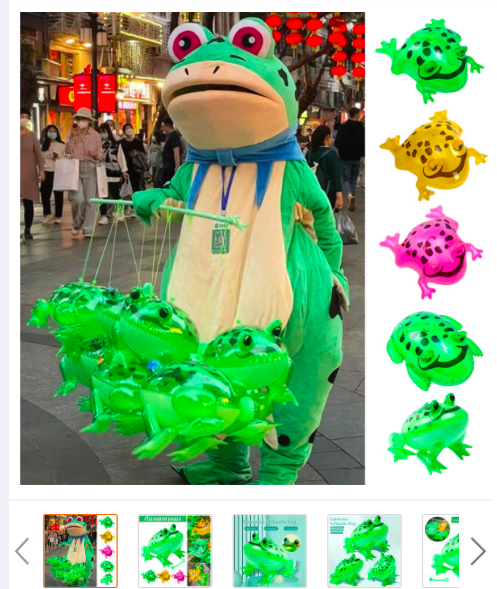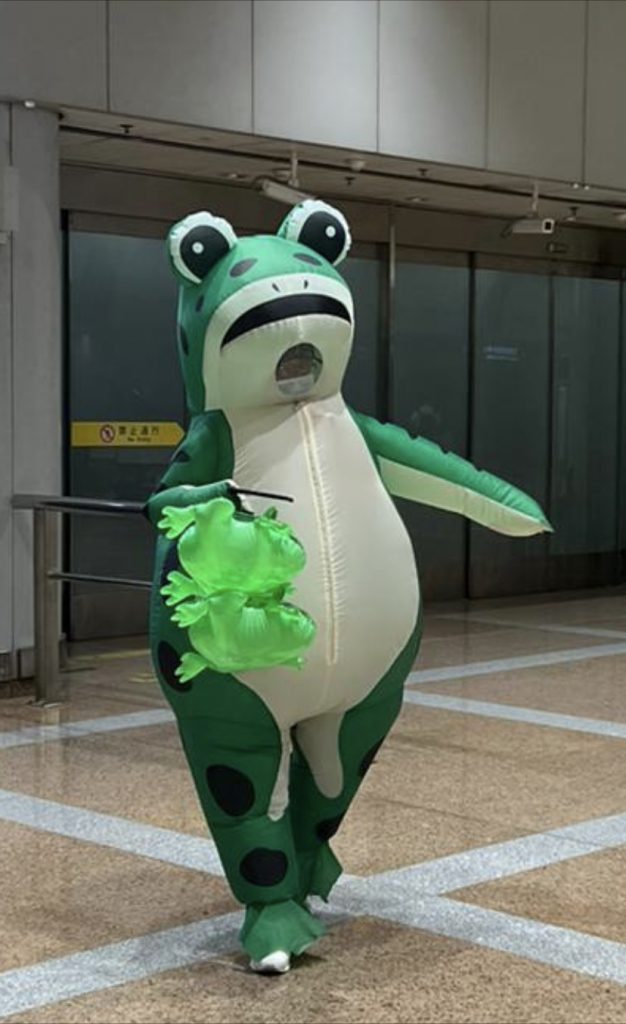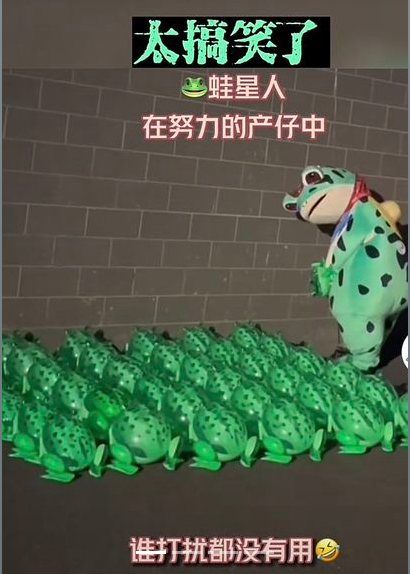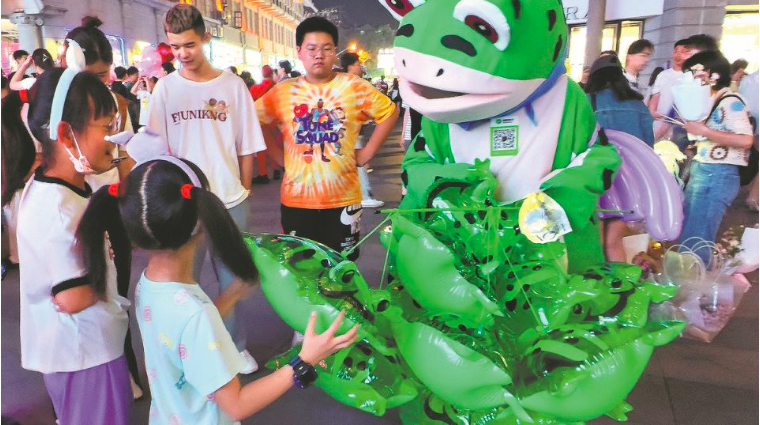I saw an interesting trend in China. People in frog costumes walking the streets and “selling baby frogs” and I decided to investigate this trend more deeply.
A viral trend has taken people across the country donning frog costumes and engaging in a quirky activity known as “frogs selling their babies.” This phenomenon involves individuals dressed as frogs selling frog-themed products, such as little frog balloons and other frog toys, on the streets. The trend has captured the attention of social media users, generating millions of views and sparking discussions about urban management and street vending regulations.
The origins of this trend trace back to Tong, a former 32-year-old teacher from Nanjing, Jiangsu province. Tong’s inspiration for the frog costume came from a character in a popular 1980s children’s animation, “Calabash Brothers.” In September of the previous year, Tong decided to combine her love for the character with her desire to spread happiness. She began wearing the frog suit while livestreaming from her home but quickly shifted her focus to the streets of Nanjing when her initial online efforts garnered limited attention.
Tong’s motivation was clear – she aimed to bring joy to people’s lives through her amusing frog persona. As she roamed the streets carrying frog balloons and other frog-themed merchandise, Tong’s presence caught the eye of passersby and netizens alike. A video showcasing her antics went viral, catapulting the trend into the spotlight and generating widespread interest.
The trend’s success has not been without challenges. Some urban management authorities have intervened, citing issues such as unlicensed street vending. These interventions, however, have ignited a broader debate about the role of such creative expressions in city culture and the need for flexible approaches to urban management.
Tong’s story embodies the fusion of creativity, entrepreneurship, and the pursuit of joy. Her decision to embrace the frog costume and take it to the streets exemplifies the power of individual initiatives to create unique and engaging cultural phenomena. The “frogs selling their babies” trend underscores the influence of lightheartedness and creative expression in shaping modern internet culture in China.
In Chinese culture, frogs hold diverse symbolic meanings. While historically, frogs have been associated with negative connotations due to their association with diseases and plagues, they have also gained more positive and complex interpretations over time. The frog’s ability to transform from a tadpole to a frog is often seen as a symbol of growth, development, and metamorphosis. In ancient Chinese mythology, the “Three-Legged Frog” or “Money Frog” is considered a symbol of wealth and prosperity, often depicted with a coin in its mouth.
Furthermore, frogs are sometimes linked to notions of renewal, luck, and even fertility. The homophonic similarity between the Mandarin word for frog (qingwa) and the phrase “putting oneself in peril” has also led to associations with courage and risk-taking.
Considering this multifaceted symbolism, the choice of frogs in the “frogs selling their babies” trend could be seen as a playful embrace of transformation, prosperity, and the courage to step out of the ordinary – all themes that align with the motivations expressed by Tong and the trend’s participants..




